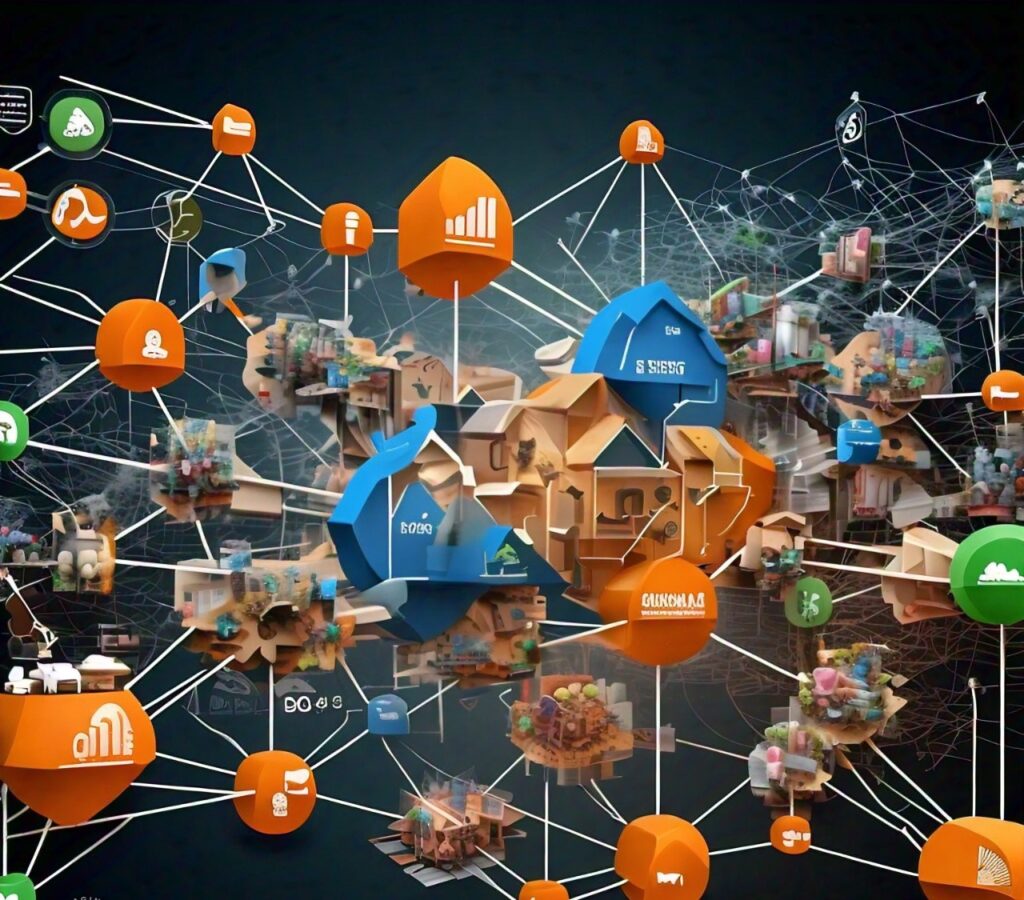Globalization is a multifaceted phenomenon that encompasses the increasing interconnectedness of economies, cultures, and populations across the globe. It is characterized by the expansion of international trade, investment flows, and the widespread dissemination of technology and information. For policy makers, understanding globalization is crucial, as it shapes the economic landscapes of nations, particularly in emerging markets.
Emerging markets—nations with developing economies that are transitioning toward more industrialized systems—play a pivotal role in the global economy. These markets often exhibit rapid growth rates, abundant resources, and a youthful population, making them attractive for investment and trade. However, they also face unique challenges, including political instability, infrastructural deficits, and vulnerability to global economic fluctuations.
This article aims to explore the intricate relationship between globalization and economic growth in emerging markets. It will examine how globalization serves as both an engine for growth and a source of potential risks, providing insights that are vital for policy makers. By understanding these dynamics, decision-makers can craft informed policies that harness the benefits of globalization while mitigating its adverse effects, ultimately fostering sustainable economic growth in their respective nations.
The Dynamics of Globalization
Historical Context
Globalization has its roots in ancient trade routes, but its modern form began to take shape in the late 20th century. The collapse of the Soviet Union in 1991 marked a significant turning point, leading to increased market liberalization and the integration of former communist economies into the global market. The advent of the internet and advancements in transportation further accelerated this process, allowing for instantaneous communication and the rapid movement of goods and services across borders.
Key Drivers of Globalization
Several factors have propelled globalization, significantly impacting emerging markets:
Technology: The rise of digital technologies has transformed how businesses operate, enabling them to reach consumers worldwide. Innovations such as e-commerce platforms and mobile banking have opened new avenues for economic participation in emerging markets.
Trade Liberalization: Many countries have adopted policies to reduce tariffs and trade barriers, facilitating easier access to international markets. Organizations like the World Trade Organization (WTO) have played a crucial role in promoting free trade agreements.
Foreign Direct Investment (FDI): Emerging markets have become attractive destinations for FDI, as multinational corporations seek new opportunities for growth. According to the United Nations Conference on Trade and Development (UNCTAD), global FDI inflows reached $1.58 trillion in 2022, with a significant portion directed toward developing economies. Read more on UNCTAD.

The Role of Multinational Corporations
Multinational corporations (MNCs) are central to globalization, driving investment and innovation in emerging markets. These companies often bring capital, technology, and expertise, contributing to local economic development. However, their presence can also lead to challenges, such as market monopolization and labor exploitation.
For example, MNCs in the technology sector have transformed local economies by fostering innovation and creating jobs. However, they can also exert significant influence over local markets and policy decisions, raising concerns about sovereignty and equitable growth. Learn more about the impact of MNCs.
In summary, understanding the dynamics of globalization—its historical context, key drivers, and the role of MNCs—is essential for policy makers aiming to navigate the complex landscape of economic growth in emerging markets. These elements set the stage for a deeper exploration of globalization’s impacts on economic growth, which will be discussed in the following sections.
Economic Growth in Emerging Markets
Definition and Characteristics
Economic growth refers to the increase in the production of goods and services in an economy over a specific period, typically measured by the rise in Gross Domestic Product (GDP). In emerging markets, economic growth is characterized by several distinct features:
Rapid Growth Rates: Emerging markets often experience higher growth rates compared to developed economies. This growth can be driven by factors such as industrialization, urbanization, and increased consumer spending. For instance, countries like India and Vietnam have reported annual GDP growth rates exceeding 6% in recent years.
Demographic Advantage: Many emerging markets boast a young and growing population, which can provide a robust labor force and consumer base. This demographic advantage can stimulate economic activity and innovation.
Resource Availability: Emerging markets often possess vast natural resources, including minerals, oil, and agricultural products. These resources can attract foreign investment and drive export-led growth.
Structural Transformation: As economies evolve, they often undergo structural changes, shifting from agrarian-based systems to more diversified economies that include manufacturing and services. This transformation can enhance productivity and economic resilience.
Current Trends in Emerging Markets
In recent years, several trends have emerged that shape the economic landscape of developing economies:
- Increased Integration into Global Supply Chains: Many emerging markets are becoming integral components of global supply chains. For example, countries like Mexico and Bangladesh have become hub locations for manufacturing due to their cost advantages and trade agreements. This integration offers opportunities for job creation and economic diversification.
- Digital Transformation: The rapid adoption of technology is reshaping economies. E-commerce and digital financial services are gaining momentum, facilitating access to markets and financial resources. For instance, mobile banking solutions have expanded financial inclusion in countries like Kenya, where platforms like M-Pesa have revolutionized payment systems.
- Sustainability and Green Growth: There is a growing emphasis on sustainable development in emerging markets. Policymakers are increasingly prioritizing green investments and renewable energy projects, recognizing the need to balance economic growth with environmental stewardship. This shift is crucial for ensuring long-term sustainability and resilience against climate change.
- Geopolitical Factors: Emerging markets are influenced by global geopolitical dynamics, including trade tensions and shifts in foreign policy. For instance, the U.S.-China trade war has prompted countries like Vietnam to attract investment as companies seek to diversify their supply chains. Explore more on geopolitical impacts.
- Impact of the COVID-19 Pandemic: The pandemic has had profound effects on emerging markets, exacerbating existing vulnerabilities while also accelerating digital transformation. Recovery efforts are now focused on resilience building, with many governments implementing stimulus packages to support businesses and protect jobs.

The Impact of Globalization on Economic Growth
Positive Effects
Globalization has significantly influenced economic growth in emerging markets, offering a range of benefits:
Increased Trade and Investment Opportunities
Globalization has facilitated access to international markets, allowing emerging economies to expand their exports. This has led to greater foreign direct investment (FDI), which brings capital, technology, and expertise. For instance, countries like India and Brazil have attracted substantial FDI, leading to infrastructure development and job creation. According to the World Bank, regions with higher FDI inflows have experienced faster economic growth rates. Explore FDI trends.
Access to Technology and Innovation
Through globalization, emerging markets can access advanced technologies that enhance productivity and efficiency. For example, technology transfer from multinational corporations (MNCs) has allowed local firms to adopt best practices and improve their operations. This is evident in sectors like manufacturing and agriculture, where innovations in processes and products have led to increased output and quality.
Enhancement of Human Capital
Globalization promotes the movement of people, ideas, and skills across borders. This can lead to improvements in education and training, as emerging markets engage with global networks. Programs that offer skills training and knowledge sharing can empower the workforce, making it more competitive. For instance, partnerships between local universities and international institutions can enhance educational standards and research capabilities.
Economic Diversification
Globalization encourages emerging markets to diversify their economies, reducing reliance on a single sector. By integrating into global supply chains, countries can develop multiple industries, from manufacturing to services. This diversification can enhance economic resilience against external shocks.
Also Read: The Impact of Trade Policies on Emerging Markets
Negative Effects
Despite these benefits, globalization also poses several challenges for emerging markets:
Economic Vulnerability and Dependency
Heavy reliance on global markets can expose emerging economies to external shocks, such as economic downturns in developed countries or fluctuations in commodity prices. For example, the COVID-19 pandemic disrupted global supply chains, severely impacting countries dependent on exports. Policymakers need to create strategies to mitigate these vulnerabilities by fostering local industries and diversifying export markets.
Inequality and Social Disparities
While globalization can drive economic growth, it can also exacerbate inequalities within societies. Benefits may not be evenly distributed, leading to wealth concentration among certain groups while marginalized communities remain disadvantaged. This is evident in many emerging markets, where urban areas thrive while rural regions lag behind. Addressing these disparities is crucial for achieving inclusive growth.
Environmental Challenges
Increased industrial activity and resource extraction driven by globalization can lead to environmental degradation. Emerging markets may prioritize economic growth over environmental sustainability, resulting in pollution, deforestation, and biodiversity loss. Policymakers must balance economic development with environmental protection by implementing regulations and promoting sustainable practices. For example, initiatives aimed at transitioning to renewable energy sources can mitigate environmental impacts while fostering growth.
Cultural Homogenization
Globalization can lead to the erosion of local cultures and traditions as global brands and lifestyles permeate societies. This cultural homogenization can diminish national identity and heritage, prompting concerns about cultural preservation. Policymakers may need to promote local cultures through education and cultural programs to maintain a sense of identity amidst globalization.

Policy Implications for Policy Makers
Strategies for Maximizing Benefits
To harness the advantages of globalization while fostering economic growth in emerging markets, policymakers should consider several strategic approaches:
Promote Trade Agreements
Establishing and strengthening trade agreements can enhance access to international markets. Policymakers should actively pursue bilateral and multilateral agreements that reduce tariffs and trade barriers, enabling emerging markets to compete globally. For example, participation in trade blocs like the African Continental Free Trade Area (AfCFTA) can boost intra-regional trade and economic integration.
Foster Innovation and Technology Transfer
Encouraging partnerships between local businesses and multinational corporations can facilitate technology transfer and innovation. Policymakers should create incentives for MNCs to invest in local R&D, fostering a culture of innovation. Initiatives like innovation hubs and technology incubators can support startups and drive economic diversification.
Invest in Education and Skills Development
A well-educated and skilled workforce is essential for maximizing the benefits of globalization. Policymakers should prioritize investments in education and vocational training programs that equip workers with the skills needed for high-demand industries. Collaborations with international educational institutions can enhance local curricula and provide valuable training opportunities.
Mitigating Risks
While globalization offers opportunities, it also presents risks that require proactive management:
Addressing Inequality
Policymakers must implement social safety nets and inclusive policies to ensure that the benefits of globalization are equitably distributed. This includes targeted programs for marginalized communities and investments in job creation in underserved regions. For instance, initiatives that promote women’s participation in the workforce can contribute to more inclusive economic growth.
Environmental Regulations
To combat the environmental challenges posed by globalization, policymakers should establish robust regulations that promote sustainable practices. This includes enforcing environmental standards for industries and supporting green technologies. Incentives for businesses to adopt environmentally friendly practices can help mitigate the ecological impact of economic growth.
Strengthening Economic Resilience
Diversifying the economy is crucial for reducing vulnerability to external shocks. Policymakers should promote sectors beyond traditional exports, such as agriculture, manufacturing, and services. Developing local supply chains and encouraging domestic production can build resilience against global market fluctuations.
Importance of International Cooperation
Globalization is inherently interconnected, making international cooperation essential for addressing shared challenges:
Collaboration in Policy Development
Policymakers should engage in dialogues with their counterparts in other countries to share best practices and develop common strategies for managing globalization’s impacts. This can lead to more coordinated responses to issues such as trade disputes, environmental challenges, and labor standards.
Participation in Global Initiatives
Emerging markets should actively participate in global initiatives aimed at promoting sustainable development, such as the United Nations Sustainable Development Goals (SDGs). Aligning national agendas with these global frameworks can help ensure that economic growth is inclusive and environmentally sustainable.
Building Global Partnerships
Establishing partnerships with international organizations, NGOs, and other countries can enhance resource mobilization and knowledge sharing. These collaborations can support capacity building and provide access to funding for development projects that address the unique challenges faced by emerging markets.
Conclusion
The relationship between globalization and economic growth in emerging markets is complex and multifaceted. This article has explored how globalization acts as both an engine of economic opportunity and a source of potential challenges. Key takeaways include:
Economic Growth Opportunities: Globalization has facilitated increased trade, foreign direct investment, access to technology, and enhanced human capital in emerging markets. Countries like China and India exemplify how these factors can drive significant economic growth.
Challenges and Risks: Despite the benefits, globalization can lead to economic vulnerability, social disparities, and environmental degradation. The experiences of Venezuela and Nigeria highlight the importance of strategic planning to avoid over-dependence on global markets.
As the world becomes increasingly interconnected, the role of policymakers in shaping the outcomes of globalization is more critical than ever. They must adopt a proactive stance, leveraging globalization as a tool for sustainable development while being vigilant about its risks.
Ultimately, by embracing a comprehensive and balanced approach to globalization, policymakers can foster an environment that not only stimulates economic growth but also ensures that such growth is inclusive, equitable, and sustainable for all.






